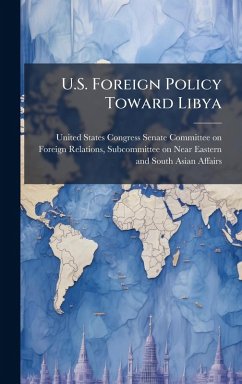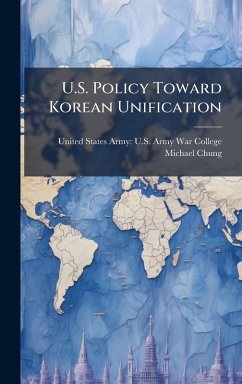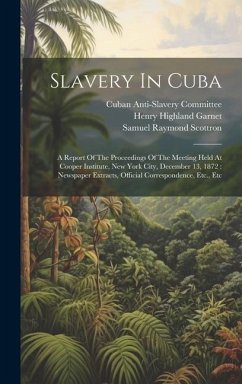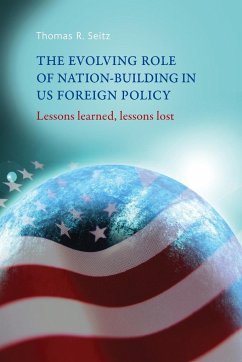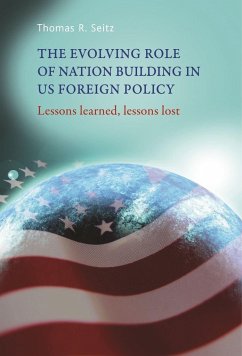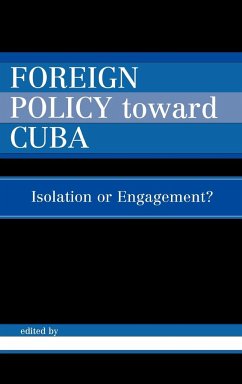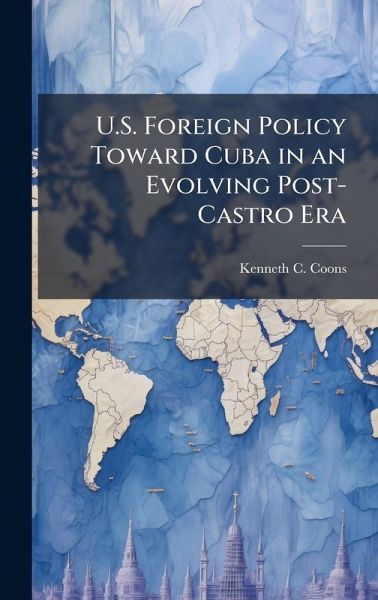
U.S. Foreign Policy Toward Cuba in an Evolving Post-Castro Era
Versandkostenfrei!
Versandfertig in über 4 Wochen
28,99 €
inkl. MwSt.
Weitere Ausgaben:

PAYBACK Punkte
14 °P sammeln!
This paper analyzes the current U.S. foreign policy toward Cuba with regard to the stated objectives contained in The National Security Strategy of the United States of America, 2002. The author surveys the historical/political context of the present impasse, policy studies prepared by government agencies and think-tanks, and joint doctrine for the peacetime use of military forces with the overall objective of determining what foreign policy strategy for Cuba best serves U.S. national security interests in the coming post-Castro era. The research finds that the present foreign policy toward Cu...
This paper analyzes the current U.S. foreign policy toward Cuba with regard to the stated objectives contained in The National Security Strategy of the United States of America, 2002. The author surveys the historical/political context of the present impasse, policy studies prepared by government agencies and think-tanks, and joint doctrine for the peacetime use of military forces with the overall objective of determining what foreign policy strategy for Cuba best serves U.S. national security interests in the coming post-Castro era. The research finds that the present foreign policy toward Cuba is counter to national security interests as it can contribute to implosion of the Cuban state, rather than a controlled and stable transition to a democratic society. Key to a stable democratic transition, and the avoidance of a state of lawlessness, is engagement with Cuban society and the one institution most likely to survive and influence the post-Castro political environment--the Cuban armed forces. The author concludes a significant shift in U.S. policy toward Cuba that reduces confrontation and emphasizes cooperation and engagement is necessary to achieve the U.S. objective of encouraging a stable transition of power in Cuba conducive to the eventual development of democracy. The author proposes an immediate, complete, and non-preconditioned normalization of relations with the Castro regime. This "Shock to the System" pre-emptive approach, in which the United States takes the first (and precautionary) move in order to achieve its security interests, is advocated as necessary to build trust and move relations beyond the deadlock of a Cold-war legacy foreign policy. This work has been selected by scholars as being culturally important, and is part of the knowledge base of civilization as we know it. This work was reproduced from the original artifact, and remains as true to the original work as possible. Therefore, you will see the original copyright references, library stamps (as most of these works have been housed in our most important libraries around the world), and other notations in the work. This work is in the public domain in the United States of America, and possibly other nations. Within the United States, you may freely copy and distribute this work, as no entity (individual or corporate) has a copyright on the body of the work. As a reproduction of a historical artifact, this work may contain missing or blurred pages, poor pictures, errant marks, etc. Scholars believe, and we concur, that this work is important enough to be preserved, reproduced, and made generally available to the public. We appreciate your support of the preservation process, and thank you for being an important part of keeping this knowledge alive and relevant.



